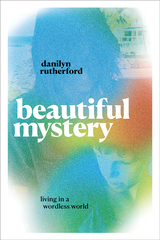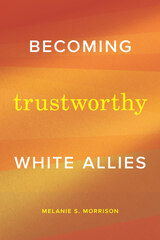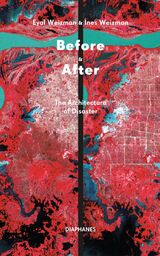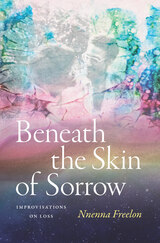2 books about Serafini, Paula

Creating Worlds Otherwise
Art, Collective Action, and (Post)Extractivism
Paula Serafini
Vanderbilt University Press, 2022
Honorable Mention, Best Book in Latin American Visual Culture Studies, Latin American Studies Association–Visual Culture Studies Section, 2023
Extractivism has increasingly become the ground on which activists and scholars in Latin America frame the dynamics of ecological devastation, accumulation of wealth, and erosion of rights. These maladies are the direct consequences of long-standing extraction-oriented economies, and more recently from the expansion of the extractive frontier and the implementation of new technologies in the extraction of fossil fuels, mining, and agriculture. But the fields of sociology, political ecology, anthropology, and geography have largely ignored the role of art and cultural practices in studies of extractivism and post-extractivism.
The field of art theory, on the other hand, has offered a number of texts that put forward insightful analyses of artwork addressing extraction, environmental devastation, and the climate crisis. However, an art theory perspective that does not engage firsthand and in depth with collective action remains limited and fails to provide an account of the role, processes, and politics of art in anti- and post-extractivist movements.
Creating Worlds Otherwise examines the narratives that subaltern groups generate around extractivism, and how they develop, communicate, and mobilize these narratives through art and cultural practices. It reports on a six-year project on creative resistance to extractivism in Argentina and builds on long-term engagement working on environmental justice projects and campaigns in Argentina and the UK.
It is an innovative contribution to the fields of Latin American studies, political ecology, cultural studies, and art theory, and addresses pressing questions regarding what post-extractivist worlds might look like as well as how such visions are put into practice.
Extractivism has increasingly become the ground on which activists and scholars in Latin America frame the dynamics of ecological devastation, accumulation of wealth, and erosion of rights. These maladies are the direct consequences of long-standing extraction-oriented economies, and more recently from the expansion of the extractive frontier and the implementation of new technologies in the extraction of fossil fuels, mining, and agriculture. But the fields of sociology, political ecology, anthropology, and geography have largely ignored the role of art and cultural practices in studies of extractivism and post-extractivism.
The field of art theory, on the other hand, has offered a number of texts that put forward insightful analyses of artwork addressing extraction, environmental devastation, and the climate crisis. However, an art theory perspective that does not engage firsthand and in depth with collective action remains limited and fails to provide an account of the role, processes, and politics of art in anti- and post-extractivist movements.
Creating Worlds Otherwise examines the narratives that subaltern groups generate around extractivism, and how they develop, communicate, and mobilize these narratives through art and cultural practices. It reports on a six-year project on creative resistance to extractivism in Argentina and builds on long-term engagement working on environmental justice projects and campaigns in Argentina and the UK.
It is an innovative contribution to the fields of Latin American studies, political ecology, cultural studies, and art theory, and addresses pressing questions regarding what post-extractivist worlds might look like as well as how such visions are put into practice.
[more]

Questioning the Super-Rich
Jennifer Smith Maguire and Paula Serafini, special issue editors
Duke University Press
This special issue of Cultural Politics uses the super-rich as a lens for exploring the impact of wealth and power on class mentalities, identities, and cultures. Contributors from a range of disciplines including sociology, economic geography, and cultural studies examine topics such as the media representations and lived experiences of the super-rich, the spatial distribution and concentration of wealth, and the discourses of (de)legitimization surrounding wealth. Throughout these essays, contributors identify the infrastructures that perpetuate and exacerbate inequalities—from politics and policy to financial devices and systems—and analyze emerging tensions within and between the categories of on/off-shore wealth, new/old money, and public/private spheres of wealth. The collection will influence the sociocultural study of elites and the study of the cultural and global repercussions of financialized capitalism.
Contributors. Jonathan Beaverstock, Roger Burrows, Aeron Davis, Sarah Hall, Caroline Knowles, Jo Littler, Joanne Roberts, Elisabeth Schimpföss, Paula Serafini, Jennifer Smith Maguire
Contributors. Jonathan Beaverstock, Roger Burrows, Aeron Davis, Sarah Hall, Caroline Knowles, Jo Littler, Joanne Roberts, Elisabeth Schimpföss, Paula Serafini, Jennifer Smith Maguire
[more]
READERS
Browse our collection.
PUBLISHERS
See BiblioVault's publisher services.
STUDENT SERVICES
Files for college accessibility offices.
UChicago Accessibility Resources
home | accessibility | search | about | contact us
BiblioVault ® 2001 - 2025
The University of Chicago Press









